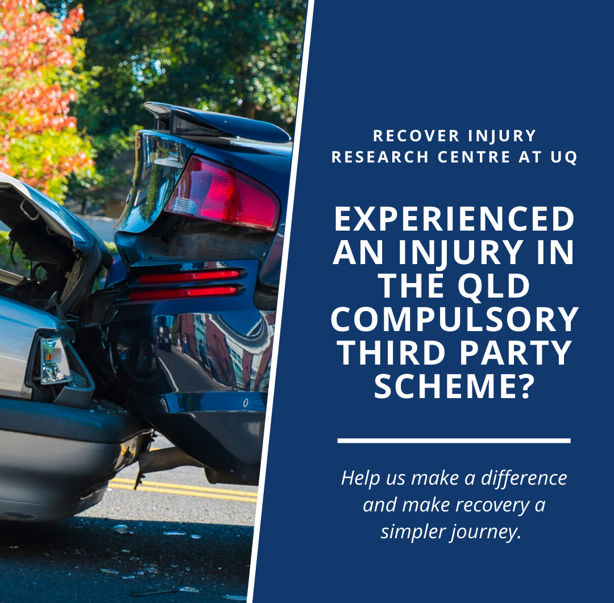Case studies: consumer involvement
Medicine use after a road traffic crash injury
Research aim
To understand peoples experience of medication use for pain management after an injury
Consumer engagement activity
Consulted two consumers and asked them to review the study recruitment materials and provide feedback.
- This activity involved consumers at the recruitment phase of research
- This type of engagement is consumer consultation
Consumer suggestions
- Change image away from a focus on medications or images that look like a accident lawyer advertisement
- Suggest image of people taking medications in regular settings
- Shift focus of wording to “are you having problems with your pain management?” or “are you still suffering pain from a car crash?” or “can you help researchers to understand pain management?” (focus about them)
- Editorial changes to study information sheet
Outcome from consultation
- Changed images
- Changed wording of advertisements
- Editorial changes to information sheet
- Consumer advised on how their contribution informed the recruitment materials.
Driving behaviour in individuals experiencing chronic pain
Research aim
- Enhance our understanding of the needs and challenges associated with driving (perspective of health professionals & adults with chronic pain).
- Provide recommendations and strategies for health professionals & people with chronic pain to improve safe driving/driving challenges.

Consumer engagement activity
- Two consumers with a lived-experience of chronic pain were invited to read a summary of the study findings and comment on the study recommendations.
- The consumers also participated in an online workshop. The workshop included members of the research team – an occupational therapist, health professionals, road safety experts in Australia, an international road safety expert and a knowledge translation officer and RACV representatives.
- This activity involved consumers at the data analysis phase of research
- This type of engagement is consumer consultation/involvement
Outcome of consumer consultation
- The workshop discussions further supported the validation of the research findings, and through this, the RECOVER team was able to develop recommendations for improving the management of driving behaviour for adults experiencing chronic pain in Australia.
- Consumers were advised about how their contribution informed the research.
- Consumers will be sent a link to the final report when it is released.
Navigating compensation systems in Queensland
Consumer engagement activity
- Consumers with a lived experience of navigating a compensation system in Queensland were invited to be part of an advisory panel with UQ researchers.
- Panel members helped researchers to understand how they found out what to do in the systems
- Contributed to the design of new resources to assist people navigate the compensation system
- This activity involved consumers at the design phase of research
- This type of engagement is to involve consumers.
Consumer suggestions:
- Easy to follow mind map to help consumers navigate the system
- Cartoon/Avatar preferred
- Written information in easy to digest format
- Information needs to be independent and trustworthy
Outcome from consultation:
- Influenced the project direction
- Adopted consumers choice of presentation
- New research project designed
- Consumers advised on how their contribution informed the development of research
